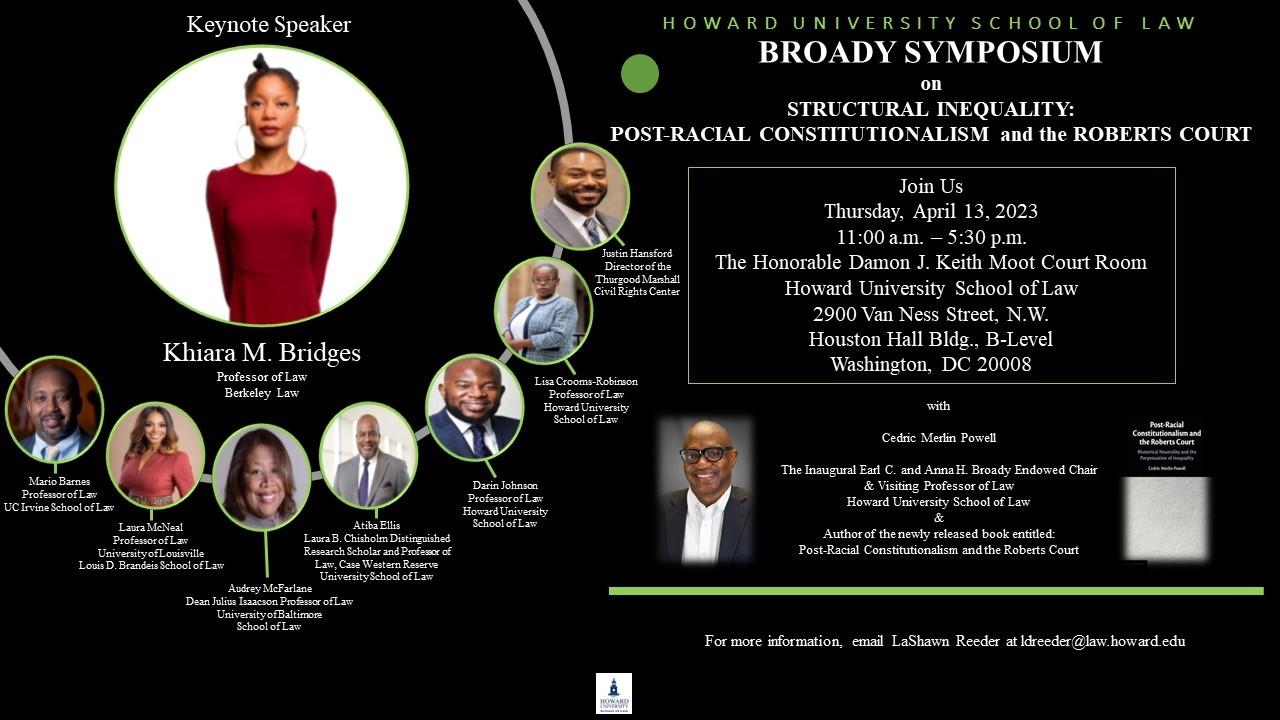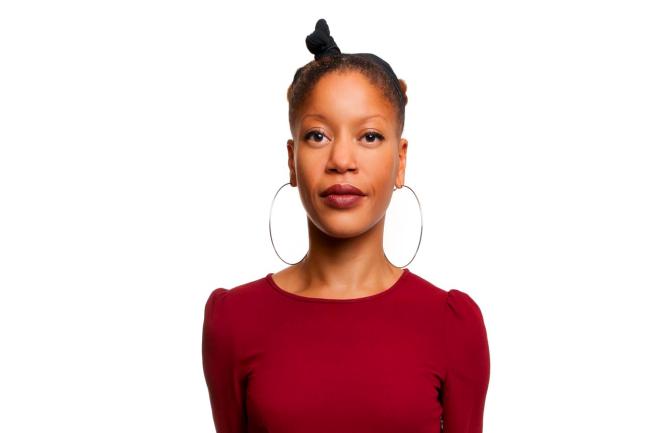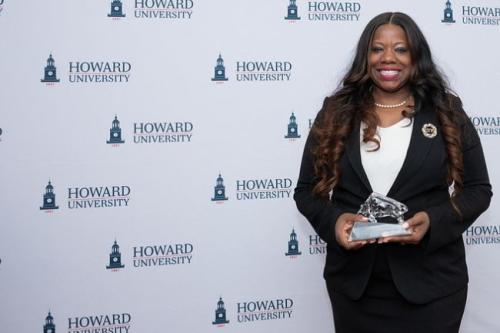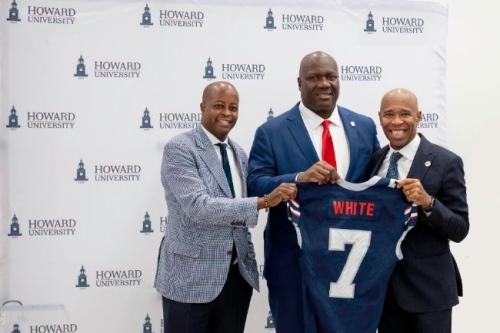
WASHINGTON – The Howard University School of Law will host the inaugural Broady Symposium on Structural Inequality: Post-Racial Constitutionalism and the Roberts Court on April 13 at 11:00 a.m. in the Damon J. Keith Moot Court Room. Distinguished scholars around the country will speak on diverse issues focusing on the Court's race jurisprudence. Due to the assault on voting rights, the expansion of state power, and attacks on anti-discrimination law, this discussion is timely.
The event will be hosted by Cedric Merlin Powell, inaugural Earl C. and Anna H. Broady Endowed Chair and visiting professor of law at Howard University. Named for the accomplished Los Angeles judge and his wife, the chair is awarded to a distinguished, outstanding scholar or contributor to law and social justice, who will add to the global stature, recognition, and legal contributions of Howard University School of Law. In this capacity, Powell teaches courses in teaching professional responsibility, critical race theory, constitutional law and a symposium on his new book— “Post-Racial Constitutionalism and the Roberts Court: Rhetorical Neutrality and the Perpetuation of Inequality.” Powell is working on a new book project entitled, “Post-Racial Federalism: Race, Liberty, and the Democratization of Oppression” (under contract, Cambridge University Press).
Powell earned his B.A. with honors in politics from Oberlin College and his J.D. from New York University School of Law, where he served as managing editor of the NYU Review of Law & Social Change. Powell also served as law clerk to the Hon. Julia Cooper Mack of the D.C. Court of Appeals, a Karpatkin Fellow in the national office of the American Civil Liberties Union, and practiced as a litigation associate with Skadden, Arps, Slate, Meagher & Flom in New York.
Khiara M. Bridges, professor of law at University of California Berkeley School of Law, will serve as keynote speaker. She has written many articles concerning race, class, reproductive rights, and the intersection of the three. Her scholarship has appeared in the Harvard Law Review, Stanford Law Review, the Columbia Law Review, the California Law Review, the NYU Law Review, and the Virginia Law Review, among others. She is also the author of three books: “Reproducing Race: An Ethnography of Pregnancy as a Site of Racialization” (2011), “The Poverty of Privacy Rights” (2017), and “Critical Race Theory: A Primer” (2019).
Bridges graduated as valedictorian from Spelman College, earning her bachelor's degree in just three years. She earned her J.D. from Columbia Law School and her PhD, with distinction, from Columbia University’s Department of Anthropology. While in law school, she was a teaching assistant for the former dean, David Leebron (Torts), as well as the late E. Allan Farnsworth (Contracts). She was a member of the Columbia Law Review and a Kent Scholar. She speaks fluent Spanish and basic Arabic. Bridges is also a classically trained ballet dancer.
Other speakers will include Howard University law professors Justin Hansford, Lisa Crooms-Robinson, and Darin Johnson along with Atiba Ellis, law professor at Case Western University, Audrey McFarlane, law professor at the University of Baltimore, Laura McNeil, professor of law at the University of Louisville, and Mario Barnes, professor of law at the University of California, Irvine.
###
About Howard University
Founded in 1867, Howard University is a private, research university that is comprised of 13 schools and colleges. Students pursue studies in more than 120 areas leading to undergraduate, graduate and professional degrees. The University operates with a commitment to Excellence in Truth and Service and has produced four Rhodes Scholars, 11 Truman Scholars, two Marshall Scholars, two Schwarzman Scholar, more than 70 Fulbright Scholars and 22 Pickering Fellows. Howard also produces more on-campus African-American Ph.D. recipients than any other university in the United States. For more information on Howard University, visit www.howard.edu.





